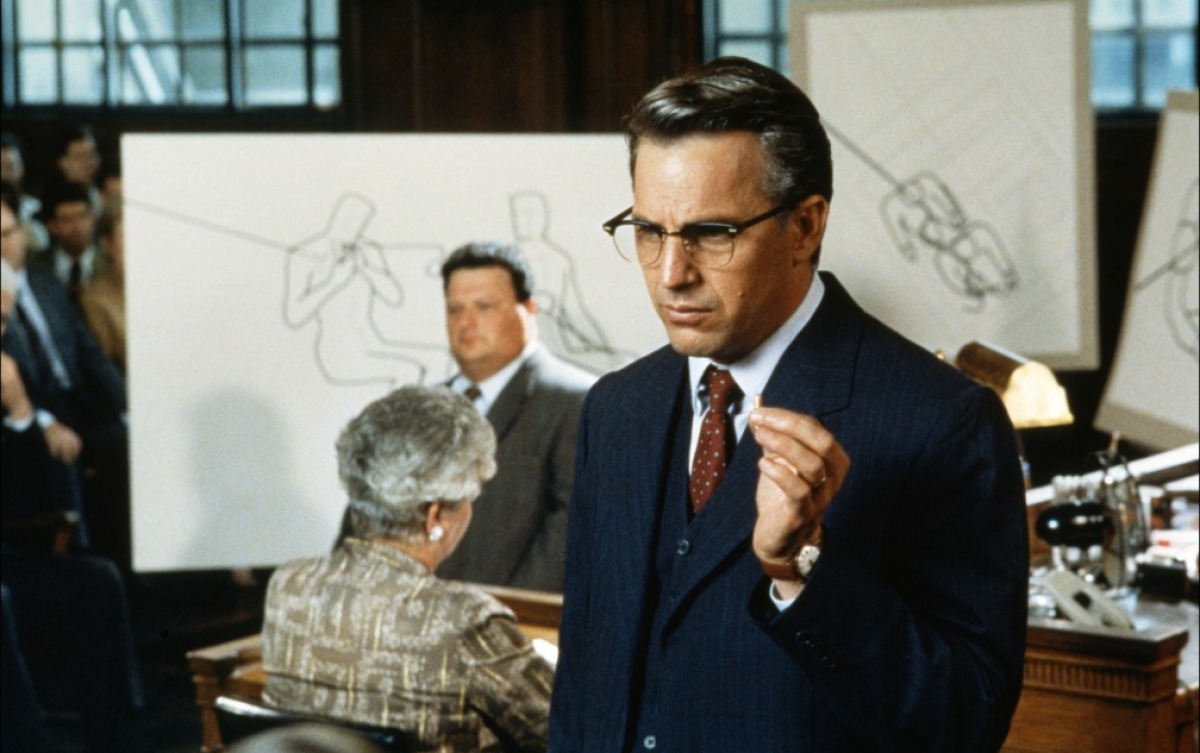
My feelings about Oliver Stone and his work have varied more than any other filmmaker. In my younger and far more vulnerable narrow-minded years, he was my intellectual hero. I was very much into Bill Hicks then; I believed there was a greater truth to things and that men such as Hicks and Stone exposed them. When I became older and things became more complicated, I realized that the contrarian voices often had their own biases. It’s easy to perceive yourself as being part of a group that ‘gets it’, but often times, as human nature goes, our wisdom turns dogmatic and becomes just another brick on the wall.
Stone’s legacy as a filmmaker will certainly be remembered. But over the years, it has become more problematic. The conspiracy surrounding the JFK assassination, a source for one of this most famous films, has now become more laughable than serious. It used to have merit but now it’s an example of the psychological profile of conspiracy-theory thinking, a product of a disenfranchisement of the 70s and the growing mistrust of the government.
Rightfully his films have become scrutinized. The political preaching and messages of his film became a detriment to his powerful filmmaking. Perhaps his films would have been better if Stone’s own character, often combative and dismissive, would have been different. There’s little humility in there and why should there be? He’s a man who bled for his country; he saw the worst in the human animal. Why should he care about his critics?
In “Oliver Stone’s America”, Charles Kiselyak’s hour-long interview with the director, the case is made that it’s not so much about the facts but about the journey. But it’s hard to believe this when the villain of his films more often than not the American government – or its central Intelligence agency. Clearly it was also about the message and not just the journey.
There is virtues to be had in this attitude; the creative freedom Oliver Stone would be result in incredible works of cinema. But as often is the case with great artists, sometimes it’s good to listen to your critics. His later body of work exudes none of the energy and cinematic verve that made him so interesting. Yet, in interviews he seems oblivious to this; perhaps he become more mellow in years, perhaps he always needed that Howard Beale anger. The most problematic are his documentaries; they would expose Stone to live in his own bubble, perhaps a greater bubble than those he wants to pop.
But the question is: should his questionable dismissal of facts matter when his (early) films are so brilliantly crafted? That’s up to the viewer, but to me, even if I acknowledge the truth about these films, I can’t dismiss them. There’s such artistry there, something you hardly see in modern cinema. Even if it’s all bullshit, it’s passionate bullshit.
To rank his films, I would put them in three categories: beginning-Stone (his two horror efforts “Seizure” and “The Hand”), early-Stone (his greatest body of work starting with “Salvador”), later-Stone (beginning with his worst body of work, starting with “Comandante”).
Even if Stone has frequently disappointed me – especially with his adaptation of Don Winslow’s “Savages” and his friendly interviews with dictators – I still yearn for a return to his golden years. In the world where shows like “Mr. Robot” fulfill every conspiracy-nuts’ desires, it seems unlikely for Stone to become as relevant as he once was. But so long as he’s here, let’s honor the man who inspired us to look through the looking glass; yes, it turns out to be just another reflection and not reality, but when we believed it was real, it was an exhilarating experience.
24. Mi Amigo Hugo (2014)
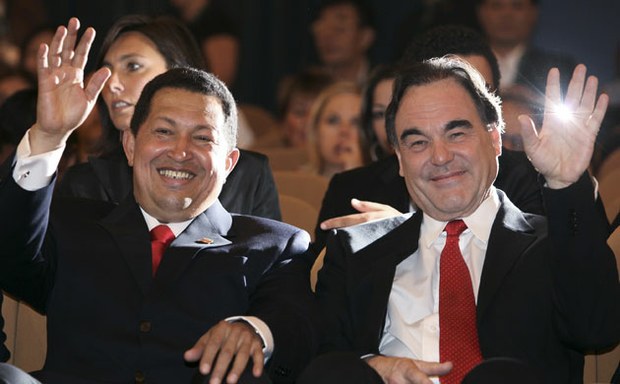
Oliver Stone has said that his politically-minded films are not meant to be documentaries. They are meant to evoke a reaction, to encourage the viewers to research the truth themselves. A meager defense at best, but a common one from filmmakers delving into questionable historical fiction. The story is the most important thing, not the facts. But this defense does not work at all for Stone’s grossly misguided documentaries. Any semblance of respectability toward his political views seems to vanish when you vehemently defend dictators.
In this short documentary about Hugo Chavez, the former Venezuelan president, the director states that this film is a farewell to a soldier and a friend. We see him being enchanted by the charismatic authoritarian, and the smiles are genuine. This is the painful truth about Stone’s documentaries: they are genuine. They come from the bottom of his heart but they are not based on reality. It’s his emotional truth, nothing more.
At no point does Stone seriously delve into Chavez’s human rights abuses, or the problems facing the country of Venezuela because of Chavez’s policies. It becomes propaganda but Stone is oblivious to this; he’s too busy writing his loving eulogy. It’s an affront to the people that have suffered at the hands of Chavez.
It would have been a sweet little film, if the truth wasn’t so painful.
23. Seizure (1974)
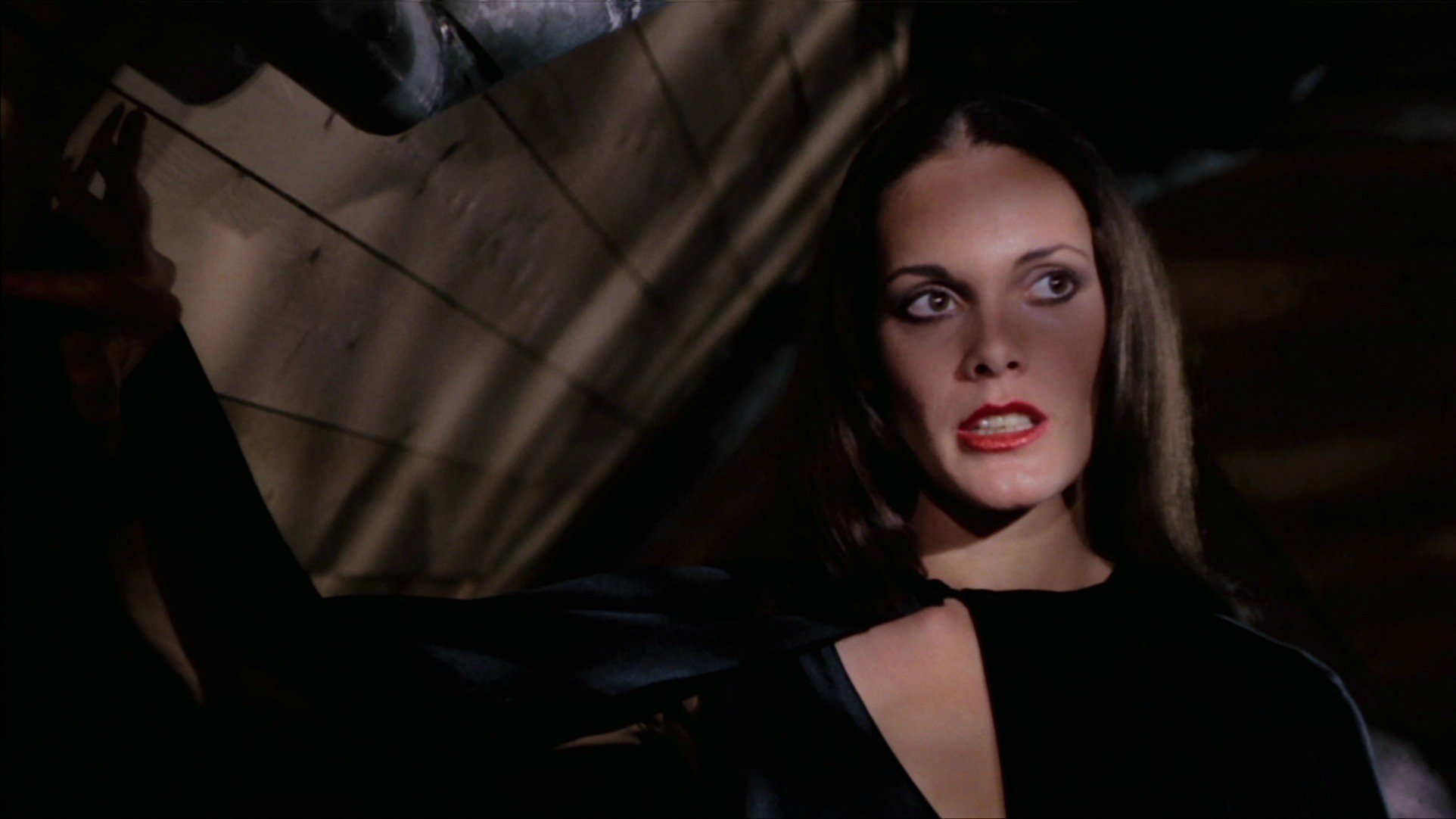
It’s easy to laugh at “Seizure”, Stone’s cinematic debut. It’s terribly dated, bombastic, and a silly low-budget horror film that ends up being more funny than horrific. It is not without its intriguing elements; some of the ideas are interesting, some of the scares even work – the sound of a howling owl as a woman pleads for her life is probably the best example of this.
Contrast this with the hilarious scene where a dwarf wrecks havoc and beats everyone down – yes, it’s supposed to be scary, but you can’t stop laughing. The acting veers from over the top to being highly enjoyable – particularly Joseph Sirola as the selfish and douchey capitalist Charles Hughes.
It’s a home-invasion thriller where a family gets invaded by three villainous subjects; a dwarf, a giant, and a woman who calls herself the Queen of Evil. Like his follow-up, “The Hand”, this film plays with psychological undertones, with the main character Edmund (Jonathan Frid) questioning his sanity.
If you’re a really big fan of Stone, this is certainly one to watch for educational purposes. It’s not a boring film but if you want to see Stone before he became the Stone we know, I’d suggest watching “The Hand”. It has what this schlocky film is missing: a deliciously menacing (and slightly hammy) performance by Michael Caine, who’s only there to cash his paycheck.
22. South of the Border (2009)

It’s a documentary by Oliver Stone, which means it’s going to be somewhat informative but incredibly biased. “South of the Border” might be one of his better documentary works, but it’s fatally flawed. It aims to represent a different view on Hugo Chavez’s regime while also exposing the false narrative given by the American media. The latter point is admirable, though critiquing Fox News for being inaccurate is not very hard.
But in order to make this point Stone refuses to give a more balanced view on the controversial leader, especially his dismal record on human rights (there is a short reference about this during the film but it is quickly dismissed).
The film’s co-writer Tariq Ali has admitted that this is an “opinionated documentary,” to show a more sympathetic view of this government. In short: if you want to know more about Hugo Chavez’s rise and controversial reign, read about it and don’t watch this documentary.
21. Comandante (2003)
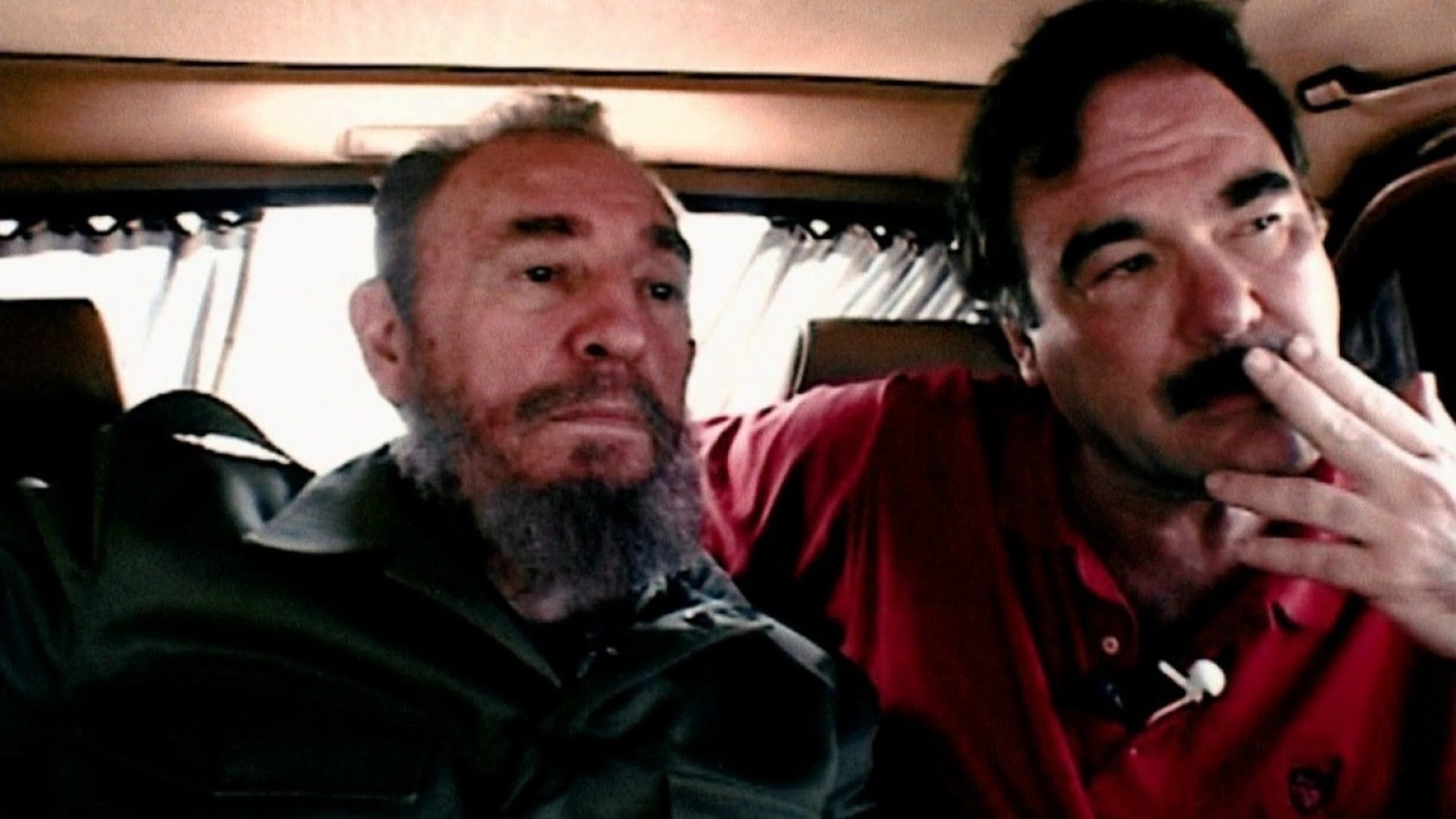
In Stone’s four-part documentary series “The Putin Interviews”, the director stated that he wasn’t defending Putin, he just wanted him to speak for himself. What Stone seems to forget is that an authoritarian like Putin was just using this opportunity to make himself look respectable in the eyes of the Western world.
A master manipulator, Stone thinks he’s being objective but in actuality, he’s actually a puppet; the fact that his son, Sean Stone, works for Russia Today, should be noted too. It’s just propaganda. It might be Stone’s best documentary work, but as his interview on “The Colbert Report” shows, Putin got to him. The truth about Putin’s reign, the arrests and murders of journalists, the subjugation of his people, these issues would not get the time they deserve. The authoritarian might have had an ideological vision, might even delude himself that he still has one, but all he cares about is power.
Putin has a lot to gain from gaining respectability in the eyes of the Western world, and has succeeded as much as several Western politicians have spoken warmly of him. Some consider him a idealistic kin. Others receive charitable loans from Russian banks. The difference between him and the late Cuban dictator Fidel Castro, is that his country was more isolated and had less to lose compared to Putin.
If you’re completely ignorant about Castro’s regime, “Comandante” is fairly entertaining. It would look like a serious conversation between two intelligent men. If you are a bit more aware about Castro’s regime, it becomes more problematic. As expected, Stone does not use his opportunity fully to really question Castro’s legacy. Stone may consider himself informed about American foreign policy, he does not seem to understand the authoritarian leader’s mindset – ”everyone seems to like you, Fidel,” Stone says cheerily, ”why don’t you hold elections?”
It’s a still a groaner, and casually offensive to the victims of Fidel’s regime, but if you feel the need to watch one of his documentaries, this one is probably – apart from his Putin series – the most entertaining.
20. Looking for Fidel (2006)
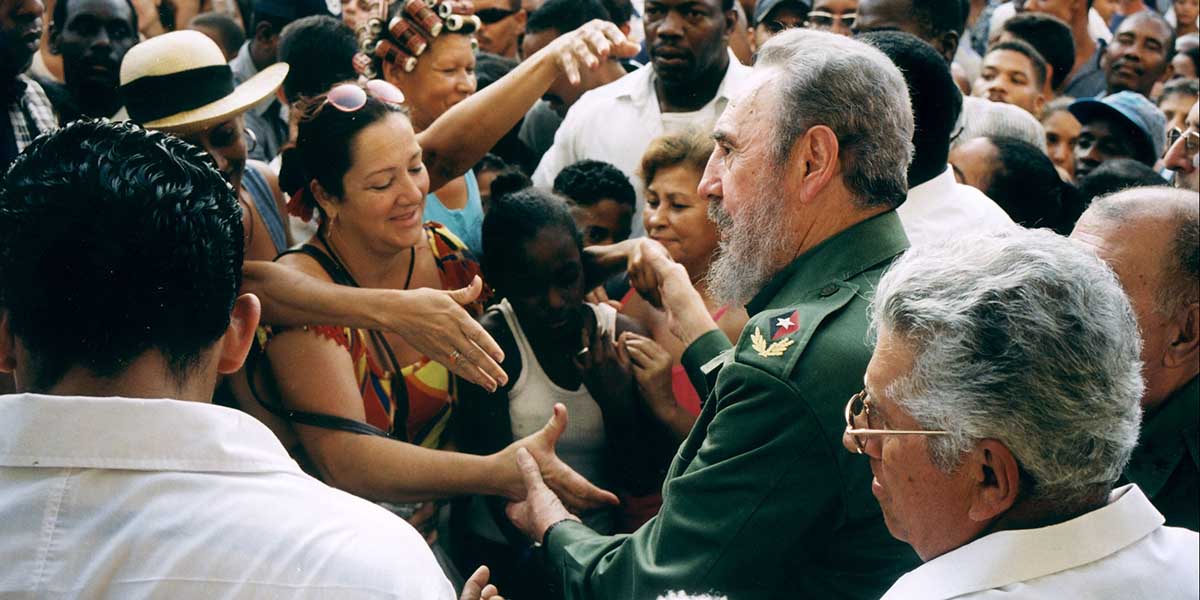
This is the age of contrarians, or better yet, people thinking they deserve the title of ‘contrarian’. Trump voters think they deserve the title because they’re going against mainstream media. The progressives think they deserve the title because they stand for those who are marginalized. In the end, most people just pick a side and this side has a huge commercial market.
And just because you hold contrarian views, it doesn’t make you right. Case in point: Stone’s admiration for Fidel Castro. “Comandante” was supposed to be a documentary, portraying a different side of the vilified leader. But just before it was supposed to air on HBO, a hijacking occurred in Cuba which led to the execution of three of the guilty parties and the imprisonment of 70 political dissidents. The documentary was quickly scrapped from the channel.
Looking for Fidel” is a minor sequel to “Comandante” with Stone returning to Cuba to meet Castro and confront him about the hostage crisis. Stone has admitted that he might have given Castro some softball questions and this documentary is supposed to atone for it. It even goes so far as Stone interviewing various political dissidents.
Ultimately, as we can see with “The Putin Interviews”, Stone hasn’t fully learned his lesson, but at the very least he was moving in the right direction. It might be less entertaining than “Comandante”, but it got closer to being an informative, if not fully objective, documentary.
19. The Hand (1981)
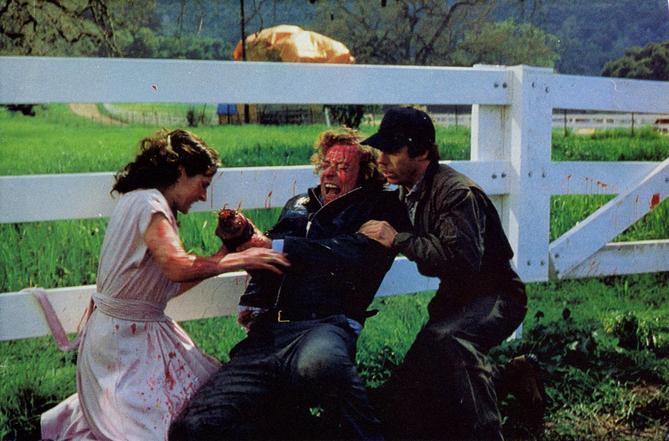
A horror film called “The Hand” gives you the impression it might be a cheesy film. Watching the finished project, you realize that your initial impressions were correct. You wouldn’t think that its director would become the highly respectable filmmaker we know now. But he would be, and truth be told, he already showed here some promise and visual inventiveness when it comes to cinematic language. There’s also some fun to be had especially with the film’s central performance by Michael Caine, who admitted that he only did this film so he could put a down payment on a new garage.
Adapted from a novel called “The Lizard’s Tail” (admittedly even “The Hand” is a better title), a cartoonist Jon Lansdale (which sounds oddly similar to famed novelist Joe Lansdale) loses his hand in a car accident. Landale has been dealing with some anger and resentment issues concerning his wife and daughter. His own severed hand suddenly seems to have a life of his own, and might want to help Lansdale deal with his issues regarding the women in his life…
Stone’s second film is certainly improvement from his first horror film; it’s basically a silly B-movie with some added psychological depth. Watch it out of interest for Stone’s career and a deliciously loony Michael Caine performance; it’s certainly better than Caine’s other cash-in performance in the hilarious travesty called “Jaws: The Revenge”.
18. Savages (2012)

There’s a young surfer girl named ‘O’ who is the romantic interest of Ben and Chon, two major pot-dealers in sunny world of Laguna Beach. When she is kidnapped by the cartel in order to force Ben and Chon to work for them, the twosome conspire to control the criminal from within and save ‘O’ in the process.
”Live like savages, beautiful savages,” were the dying words of a major character at the end of Don Winslow’s novel “Savages”. It was a surprisingly moving finale to what was thus far, classic Winslow literature: pulpy, fast-paced, minimalistic, action-packed, funny with the air of realism since the author had spent years researching the Cartel underworld. Like much of Winslow’s literature, it is ripe for the silver screen. Given the right filmmaker, you could have yourself a memorable crime thriller.
Well, the right person certainly wasn’t Oliver Stone, because he definitely didn’t understand what made the original novel work. If there was a main fatal flaw, it would have been the casting of the three central characters: Taylor Kitsch as Chon, Aaron-Taylor Johnson as Ben, and especially Blake Lively as ‘O’. The emotional core, the love between these three people, doesn’t work if none have chemistry with one another. You simply don’t care what happens to them.
In the novel, they were lovable but goofy drug pushers. In the film they are three very pretty specimens and that’s it – there’s nothing memorable about them. Lively fares the worst because she’s tragically miscast. The quirky lines given to her character in the novel worked, but when she has quips them on screen, it’s cringe-inducing, and to make matters worse, she also narrates through much of the film. It’s unbelievable that a director who’s worked with the most talented people in Hollywood couldn’t see this.
The only thing that does work is the casting of the film’s villains, played respectively by Salma Hayek and Benicio Del Toro, who seem to have leaped from the pages of the original novel.
If the film had at least kept the original ending intact, it would have been salvageable; an imperfect but entertaining crime thriller. But as just as you think it goes in the right direction, Stone quickly reverses it and butchers what could have made this film redeemable. The line ”live like savages” is now spoken in a different but thoroughly less effective context. This decision is simply unforgivable and it goes to show that later-Stone couldn’t even make a decently enjoyable crime flick.
17. Wall Street 2: Money Never Sleeps (2010)

It’s actually quite amazing how dull this film is. Given the period when it was made, just right after the Gordon Gekko’s of the world wrecked the economy, a sequel to “Wall Street” would have been ideal. But this is later-Stone, so none of his aesthetic craftsmanship, something that has served him so well even if they had a questionable historical perspective or motive, is absent. The return of Gordon Gekko has him tutoring son-in-law Jake (Shia LeBeouf) in the ways of playing the ”game”, while also aiding him on a revenge plot against rival trader Bretton (Josh Brolin) after his actions led to the suicide of Jake’s mentor Louis (Frank Langella).
Perhaps the hilariously cheesy title should have been enough warning – Money Never Sleeps? Are you fucking serious?
This is the a prime example of later-Stone – a film that seems to leave no impact on the viewer. Granted, Stone’s earlier efforts might have been a bit overblown, but at least they made an impact. The best part of this movie comes with the supporting performance from Eli Wallach, in his final role, in which he chews the scenery by whistling menacingly.
There’s a short and unsatisfying cameo by Bud Fox (Charlie Sheen), the hero of the first film. While there might be stuff to enjoy here for economic buffs, the film is wholly unmemorable. After Reaganomics paved the way for massive economic inequality, you’d expect Stone to go after them tooth and nail, but it all falls hopelessly flat. There’s no bite, no incendiary or insightful commentary. There’s only the whistling of the late and always great Eli Wallach.